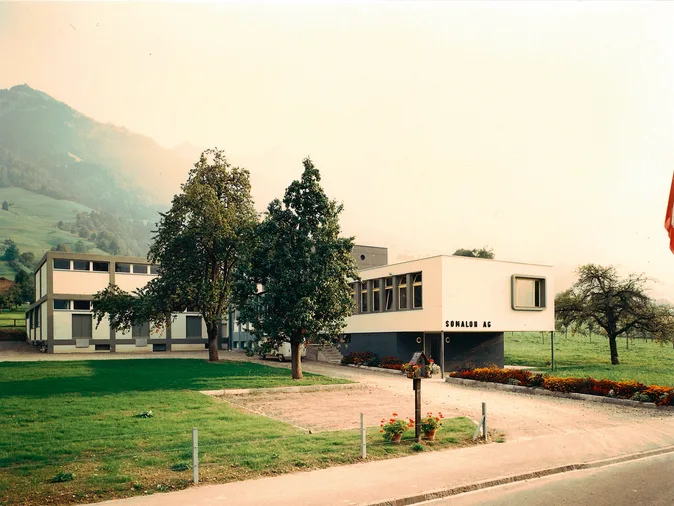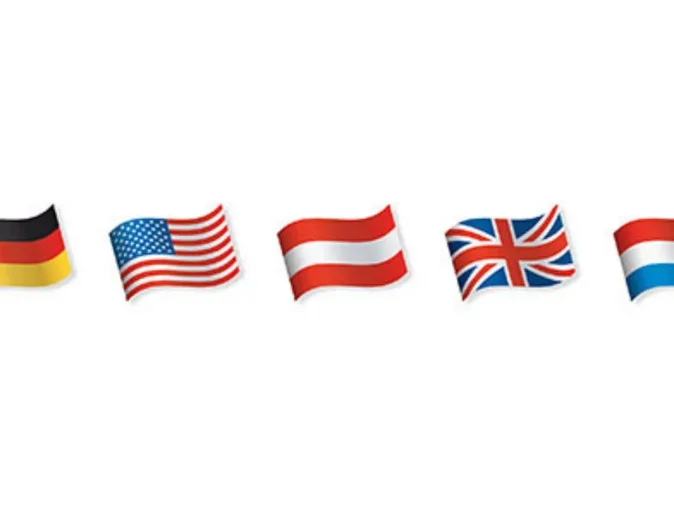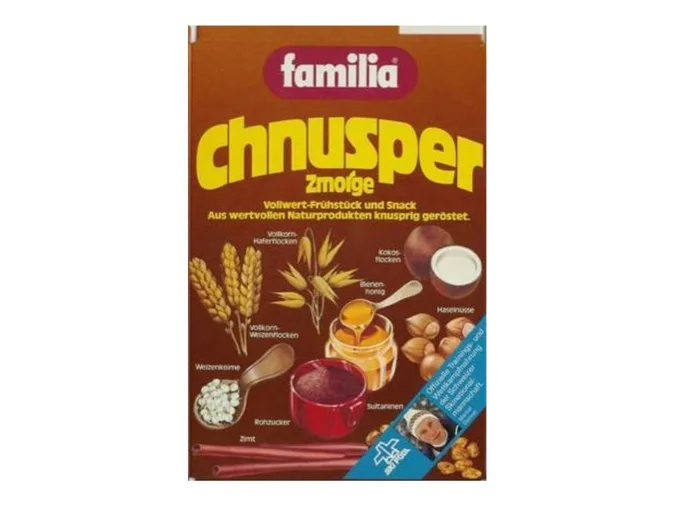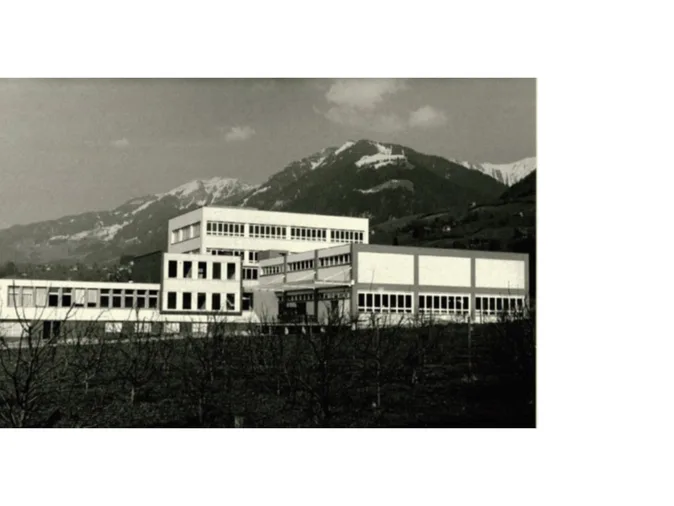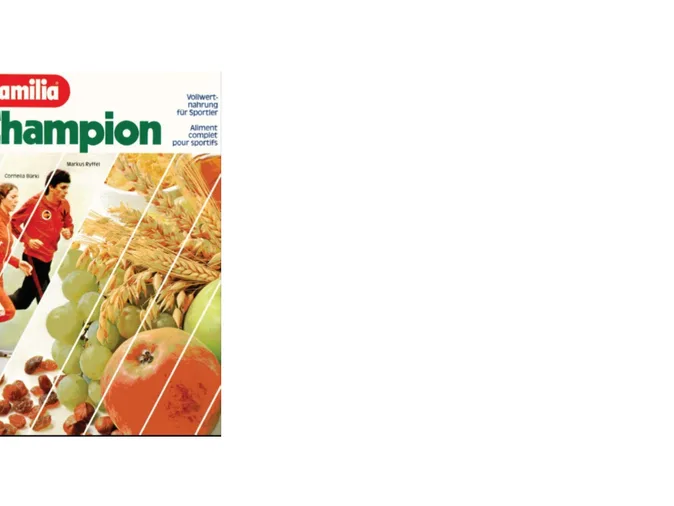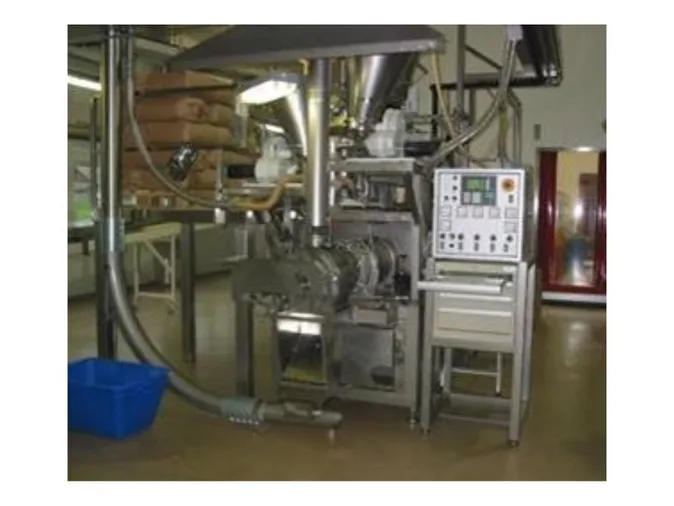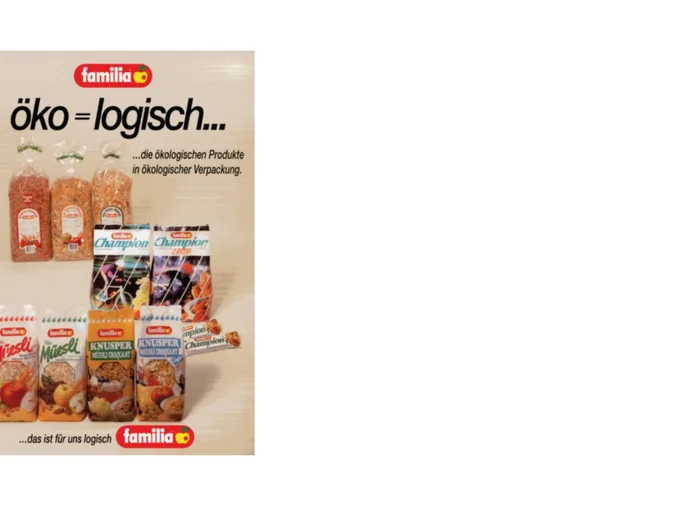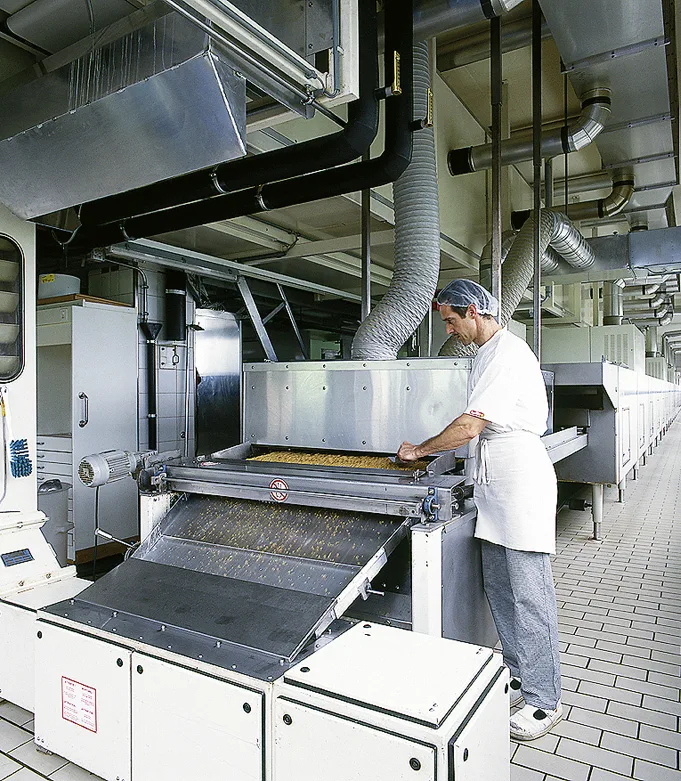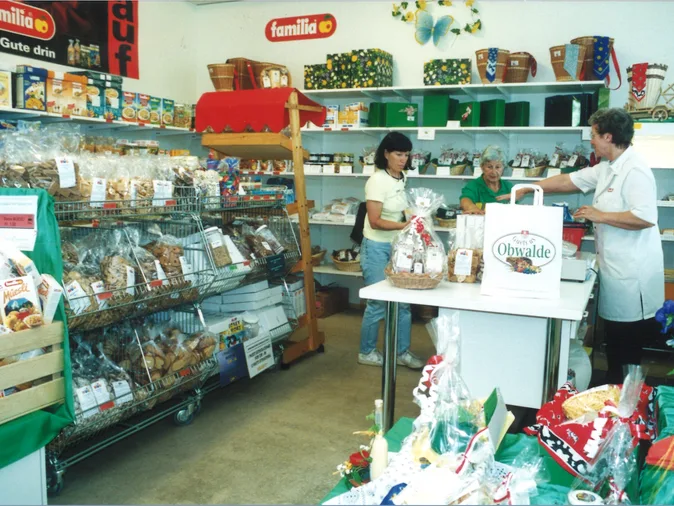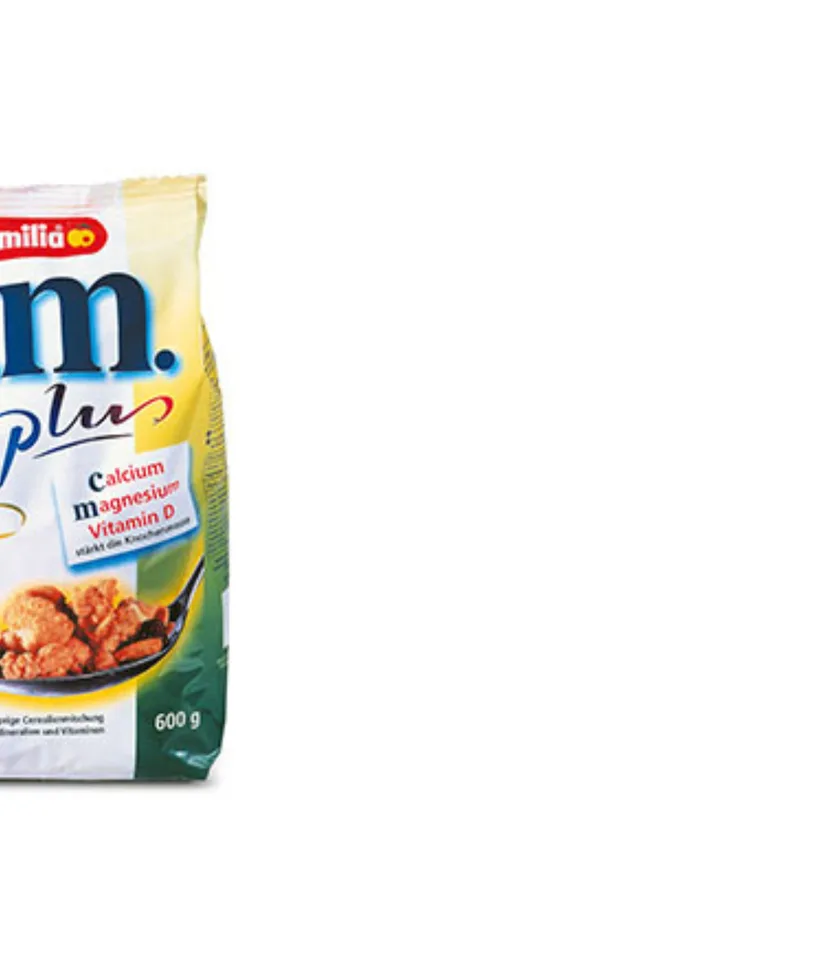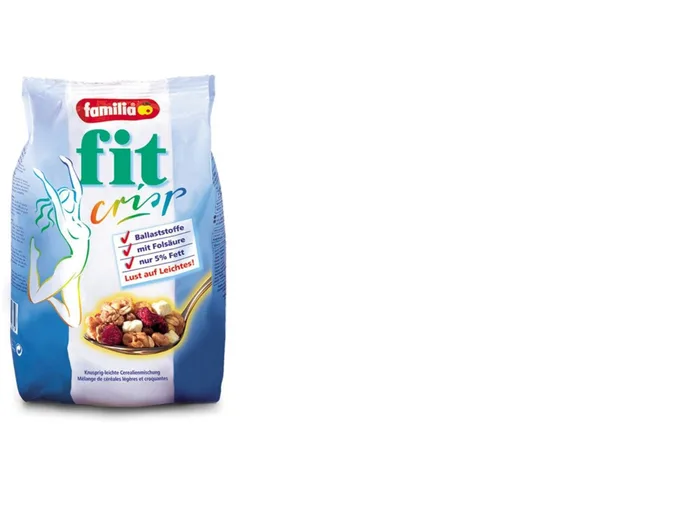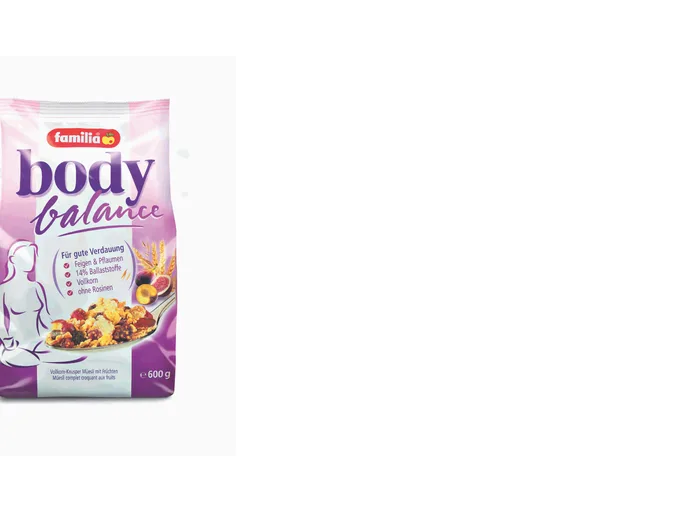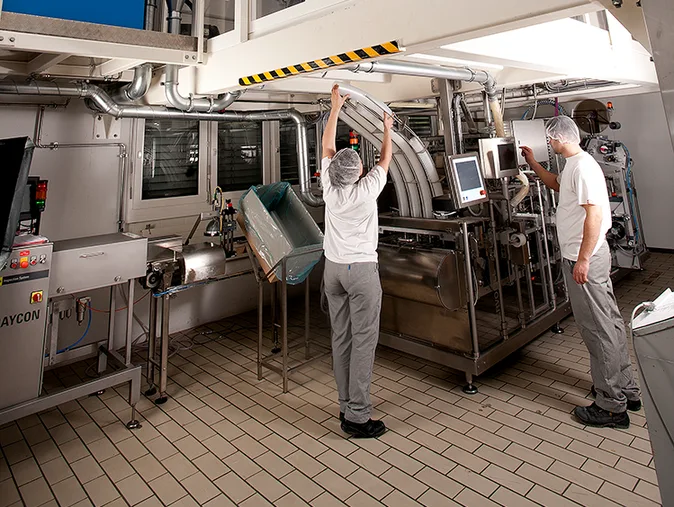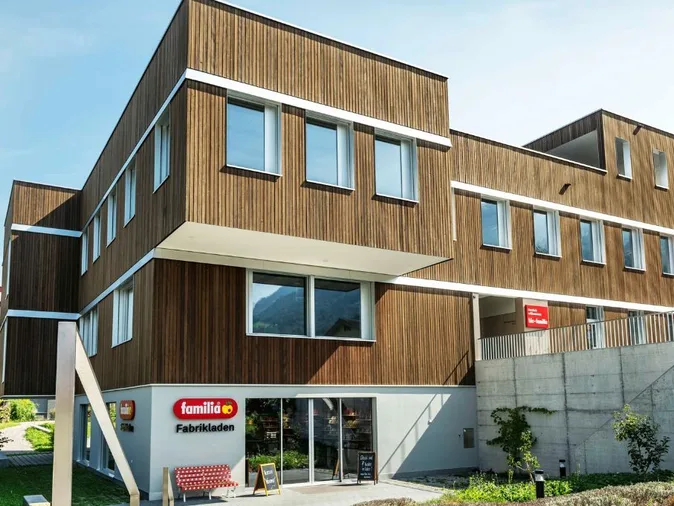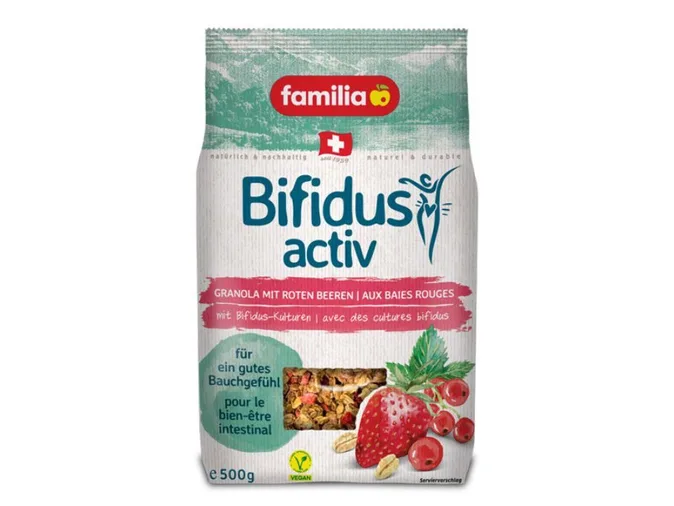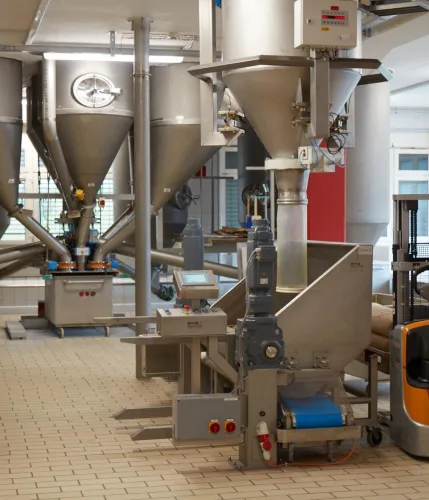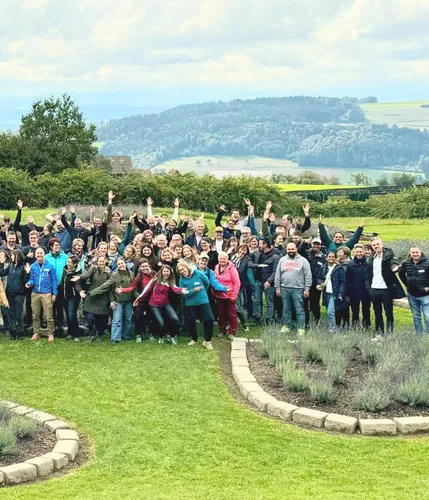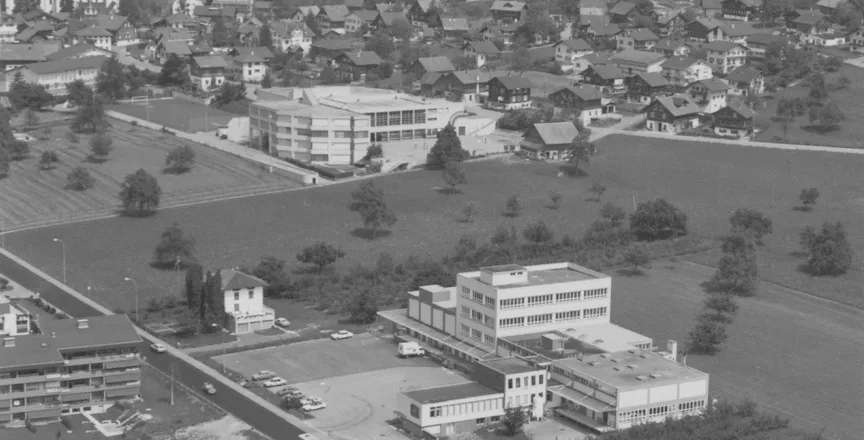
Our history
A love story laid the foundation for the global success of Birchermüesli and made bio-familia a pioneer in the field of Müesli and organic products. Dive into the Müesli success story.
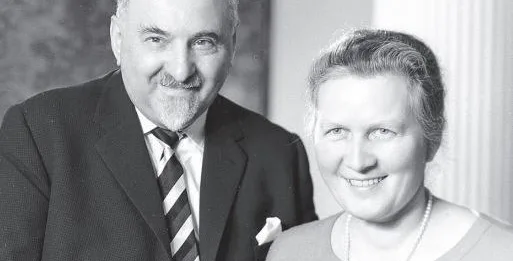
The story of our establishment
Our story of our establishment begins with a love story.
The history of bio-familia
A love story that became a success story: The first familia organic Birchermüesli was born in 1959 out of a deep-seated sense of connection and the vision of healthy nutrition for all. What began in the heart of Switzerland has become a global success and made bio-familia a pioneer in the field of Müesli and organic products.
It all began with a love story – the story of Anny Metzner from Solothurn, a Swiss woman living abroad, and Georg Hipp from Germany, who made baby food there. Anny Metzner’s grandparents had a good relationship with Obwalden. Georg and Anny Hipp-Metzner followed in their footsteps and often visited the tomb of St. Nicholas of Flüe in the parish church of Sachseln and also Flüeli-Ranft, where the saint had lived. There, surrounded by the impressive mountain scenery, they felt a deep-seated sense of connection – not just to each other, but also to this powerful place.
Anny and Georg Hipp-Metzner had a vision. They wanted to boost Obwalden’s economy. To do so, they founded the company Somalon AG in 1954. Together with their long-time friend, the Grisons-based lawyer Dr Caspar Arquint, they started an attempt to market baby food from Sachseln. However, the Swiss market was saturated and business did not go to plan. New ideas were needed.
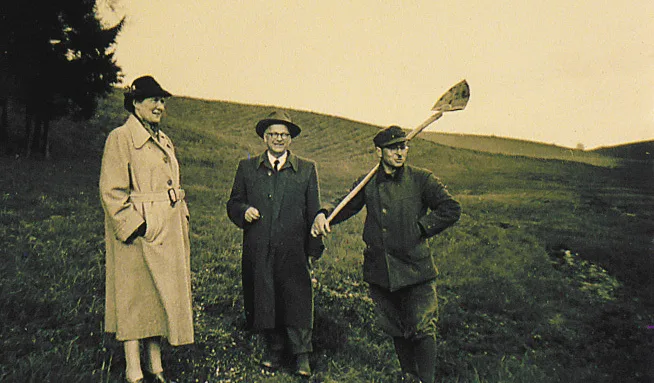
Dr C. Arquint obtained this inspiration through his friendship with Dr Max Edwin Bircher, the son of the inventor of Birchermüesli. The idea was born: ready-made Birchermüesli! The Bircher family’s consent was given on the condition that as many of the raw materials as possible were organic. Somalon AG was therefore allowed to call its blend ‘organic Birchermüesli’. This paved the way for Somalon AG to become a pioneer in the field of Müesli and organic products.
The founder of organic farming, Dr Hans Müller, delivered the first organic raw materials to Sachseln. In a letter, Dr C. Arquint wrote: ‘We soon started building a little factory in Sachseln. A year later, in the winter of 1958, we processed the first organic apples and grains for our new organic Birchermüesli.’ Then, in 1959, the company launched its first Birchermüesli under the brand name ‘familia’. The brand name said it all – healthy food for the whole family.
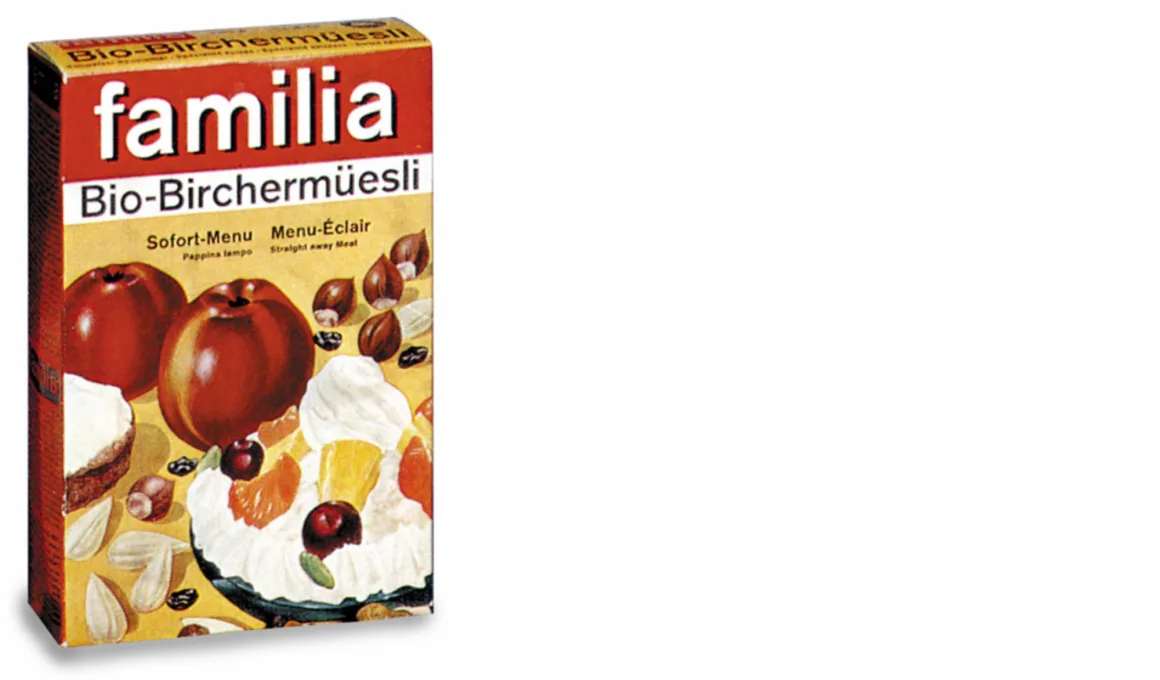
Success was not long in coming. Just a year later, familia Bio Birchermüesli was exported to countries such as Germany, Austria, England, the Netherlands and even the USA. Today, the Swiss term ‘Müesli’ is used in countless languages around the world. Müesli soon conquered the globe. As a logical consequence, Somalon was renamed bio-familia AG in 1978.
Inspired by the principles underlying organic Birchermüesli, it launched many other innovative products. They continue to shape the company’s wide range today. bio-familia still stands for high-quality, healthy nutrition and makes a significant contribution to the balanced diets enjoyed by consumers around the world – all based on the principles of a connection to nature and pioneering spirit that began many years ago in the mountains of Obwalden.
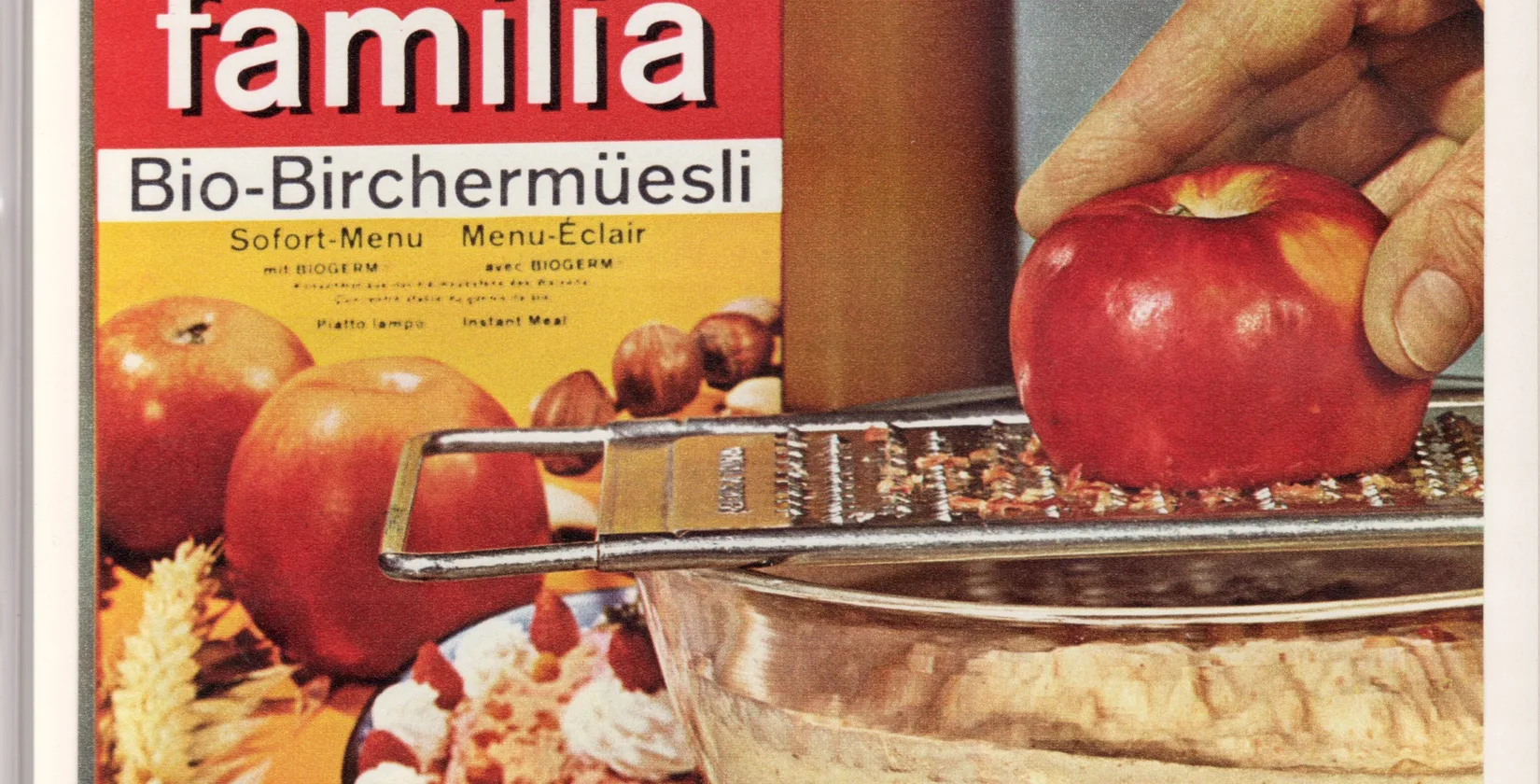
The story of Birchermüesli
How a simple Swiss meal gained global renown.
In the Swiss Alps, Dr Maximilian Bircher-Benner discovered a simple meal that would later be known worldwide as Birchermüesli and become the epitome of healthy nutrition.
In the high altitudes of the Swiss Alps, where the clear air makes your cheeks flushed and you can see all the way to the horizon, something occurred that would change the world of food forever. On this day, Dr Maximilian Bircher-Benner, born in Aarau in 1867, met a dairymaid while out on a hike. She invited him to join her for a meal. He shared the table with three bearded shepherds.
A simple yet nourishing meal was set in front of him: milk, porridge, apples and nuts. Food that was commonplace for the herdsmen at the table, but a revelation for the doctor. As he looked at the powerful herdsmen, with their red cheeks and seemingly endless energy, it became clear to him that this food was more than just a meal – it was a source of real vigour. This spark ignited an idea that would later conquer the world as Birchermüesli.
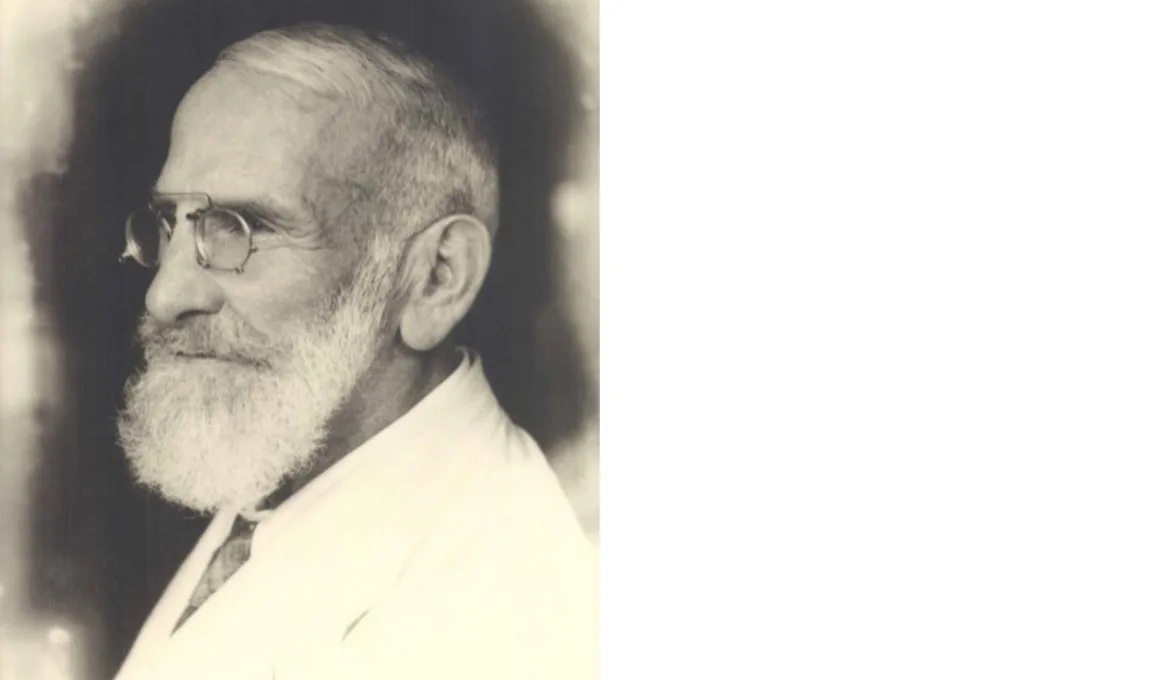
Dr M. Bircher-Benner, a man who believed in the healing power of nature and the importance of raw food, honed the recipe. Using oats, raw apples, nuts, sweetened condensed milk and a dash of lemon juice, he created a meal that he prescribed to his patients every day. His belief that good health was founded on conscious nutrition and cannot be attained by medication alone earned him ridicule from fellow doctors – but he did not waver. The patients at his sanatorium on the Zürichberg underwent incredible recoveries and Birchermüesli quickly made a name for itself. What began as a medicinal diet soon became known throughout Switzerland and far beyond its borders. The term ‘Birchermüesli’ was heard around the world.
But the story of Birchermüesli was far from over. In the late 1950s, the Sachseln-based company Somalon AG (now bio-familia AG) took the next step and developed the first industrially produced Müesli. Birchermüesli’s reign as Switzerland’s national dish began from that point on.
A simple meal, born out of the power of nature and a moment of discovery, has become a global symbol of healthy nutrition. Today, the word ‘Müesli’ represents healthy, balanced food in every language. But its roots go back to the Alps, to a small hut, a plate full of power and a doctor who wanted to change the world – and achieved that aim.
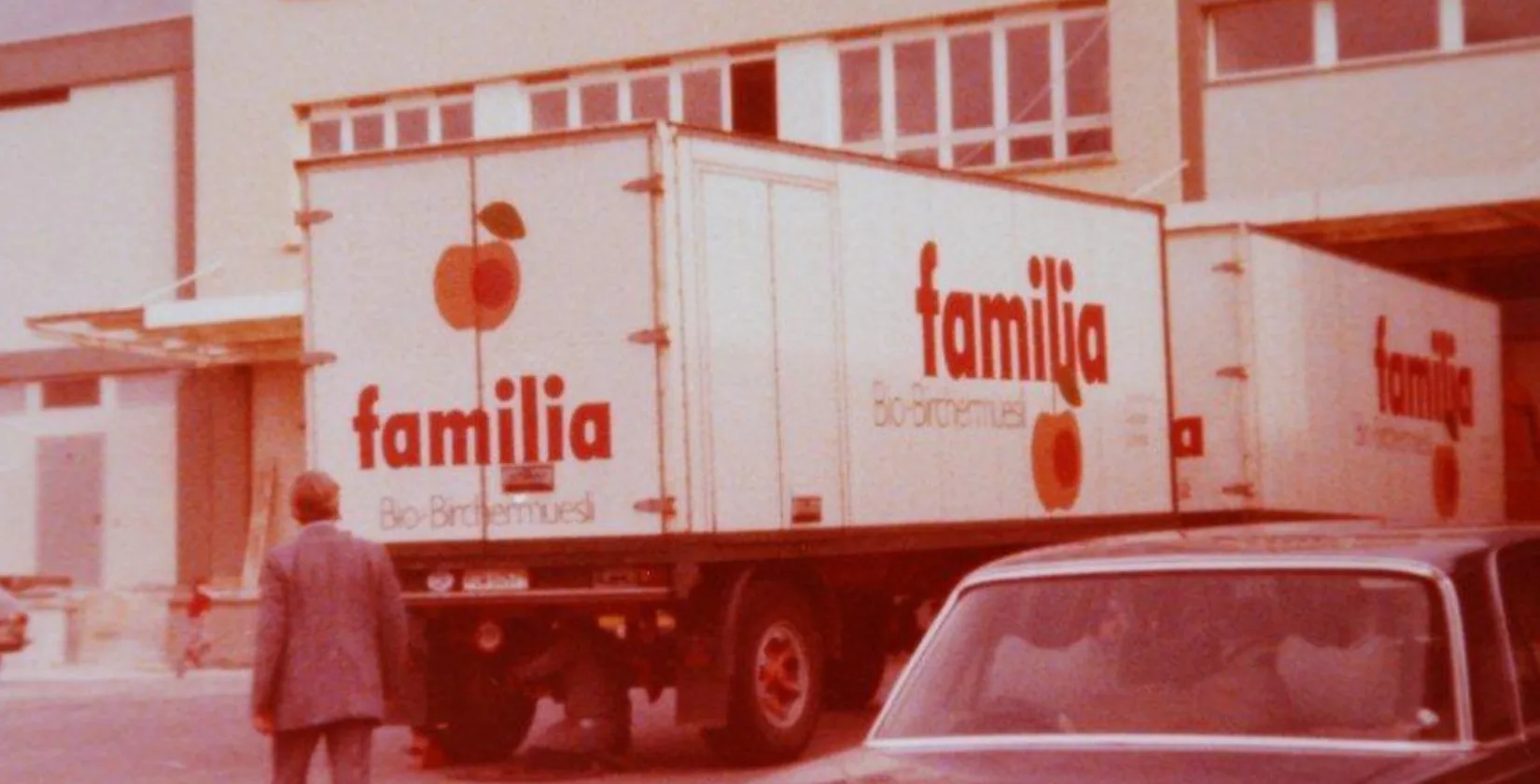
Meilensteine
Eine Reise durch unsere Geschichte.
